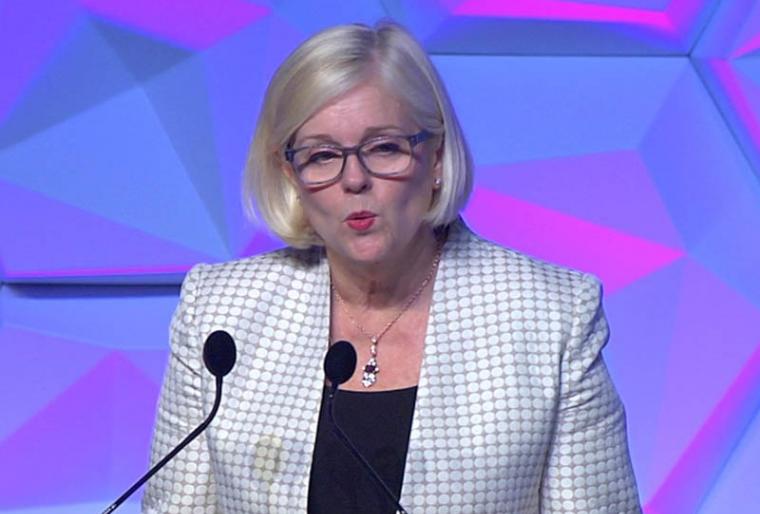The federal government has pledged an additional $12 million to the local space sector, with a new mission control centre and education facility to be established in Adelaide.
But some in the local space sector have questioned the allocation of the funding, with claims that it could have been better spent elsewhere.
Industry minister Karen Andrews on Monday morning announced that the government will commit $6 million each to a Mission Control Centre in Adelaide and a Space Discovery Centre.

The $12 million in funding is on top of the $26 million over four years allocated for the establishment of the Australian Space Agency in last year’s budget, and $15 million over three years for global partnerships.
It comes after the government announced late last year that the headquarters of the new space agency will be located at Lot Fourteen in Adelaide.
The new Mission Control Centre will serve as a “focal point” for space missions in the country, Ms Andrews said, and provide facilities to control the small satellite missions that have become popular in recent years.
“It will be available for use by space startups and small-to-medium enterprise space businesses, as well as research and educational institutions from across Australia. These investments will help the Australian Space Agency foster the growth of a globally competitive space industry, worth about $US345 billion,” Ms Andrews said in a statement.
The Space Discovery Centre will provide “STEM education, engagement and inspiration” for young Australians, and provide activities such as mission simulation.
The additional funding is welcome news, Gilmour Space Technologies founder Adam Gilmour said, but when overall funding levels are still relatively low, there are other more important things to be contributing to.
“I think in an era of extremely small budgets for the space agency and industry, we have to be very careful where the initial dollars get spent. I think with a larger space budget a mission control and education centre would be a good idea. I hope they continue the investment with a launch site so we can launch satellites in Australia that can be tracked with this new mission control,” Mr Gilmour told InnovationAus.com.
Mr Gilmour’s company recently tried to set up its own space academy in Queensland, but said the government had not consulted with him over its new plan.
“We set up a space academy on the Gold Coast three years ago with no government support, but struggled to generate enough revenue to succeed. We have spent millions of dollars on space simulators, so I’m surprised we haven’t been contacted about our simulators,” he said.
The $26 million over four years allocated to establish the space agency was widely criticised in the industry as not being sufficient, and there have been hopes that funding would increase once the agency and industry prove their worth.
The announcement came on the same day that Sydney-based space startup Saber Astronautics secured a $US1.875 million contract with the US Air Force to develop a virtual reality space operations centre.
The Phase II contract will facilitate the development of the “Space Cockpit”, a “world-first virtual reality space operations centre that enables operators across US services and allied partners to visualise the local space environment, make rapid decisions and manage a large number of space objects”.
The new technology will be “leap years ahead of current space operations capability”, Saber CEO Jason Held said.
The development of the Adelaide mission control centre is set to go to tender, and Saber Astronautics will be applying for it, Dr Held said, with the new technology being developed in the US being a good fit for it.
At a doorstop at Lot Fourteen, South Australian premier Steven Marshall said the new educational facility will help encourage young Australians to pursue a career in the space industry.
“The Space Discovery Centre [will] be an enormously useful resource to demonstrate to the people of our state, young people, older people, exactly what the implications and the opportunities are for space here in South Australia and globally,” Mr Marshall said.
Australian Space Agency boss Megan Clark said the control centre will be especially useful for early stage space startups.
“By opening up a Mission Control Centre that can be used by small and medium-sized enterprises, it means that they can get there faster and they can use a shared facility. When they grow up to be a larger company they’ll probably want their own, but this allows them to get moving quickly,” Dr Clark told reporters.
“We have a lot of catching up to do in Australia. We need to catch up and get Australia positioned globally, and so we want to make sure that small to medium sized enterprises can really make that jump.”
Do you know more? Contact James Riley via Email.

